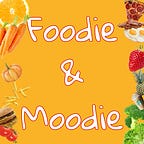Veganism
and the difference between ‘’Vegan’’ and ‘’Vegetarian’’
Hey, Everyone! Ready to start? Let’s read to become a more sophisticated Foodie.
In the past few years, veganism is becoming increasingly popular many people and celebrities have gone vegan, and vegan products have appeared in almost every stores.
Dear Foodies you may still be curious about what this eating pattern involves, what you can and can’t eat on a vegan diet, what is it about and the differences between vegan and vegetarian. Don’t worry, I’ll explain you everything you need to know about it.
The phrase “vegan” was coined in 1944 by the Vegan Society was founded in 1944, but there is evidence of people deciding not to consume animal products over 2,000 years ago. It’s a really long story, isn’t it huh?
They chose not to consume dairy, eggs, or any other products of animal origin, in addition to refraining from meat. This means following a plant-based diet. Vegans do not eat animals or animal-based products.
Vegans generally choose to avoid animal products for the following reasons:
Ethics
Ethical vegans strongly believe that all creatures have the right to life and freedom.Therefore, they oppose ending a conscious being’s life simply to consume its flesh, drink its milk, or wear its skin especially because alternatives are available and also ethical vegans are also opposed to the psychological and physical stress.
Health
Some people choose veganism for its potential health effects.
For example, plant-based diets may reduce your risk of heart disease and Alzheimer’s disease, type 2 diabetes, cancer, premature death. Of course there is one more reason and it is absolutely the most popular one. I can hear your voice! To lose weight. Bingoooo!!!!
Environment
People may choose to avoid animal products because of the environmental impact of animal agriculture.
A 2010 United Nations (UN) report argued that these products generally require more resources and cause higher greenhouse gas emissions than plant-based options. Animal agriculture can also lead to deforestation when forested areas are burned for cropland or pasture.
Types of Veganism
- Dietary vegans. Plant-based eaters.
- Whole-food vegans. These individuals favor a diet rich in whole foods, such as fruits, vegetables, whole grains, nuts, and seeds.
- Junk-food vegans. Some people rely heavily on processed vegan food, such as vegan meats, fries, frozen dinners, and desserts, including Oreo cookies and non-dairy ice cream.
- Raw-food vegans. This group eats only foods that are raw or cooked at temperatures below 118°F (48°C).
- Low-fat, raw-food vegans. Also known as fruitarians, this subset limits high-fat foods, such as nuts, avocados, and coconuts, instead relying mainly on fruit.
Foods that vegans avoid
- meat
- chicken
- fish and seafood
- dairy and eggs
- bee products (honey, pollen)
- animal-based ingredients (whey, lactose, gelatin, animal-derived vitamin D3, fish-derived omega-3)
Supplements to Consider
Some vegans have difficulty in to meet their daily requirements. These supplements can be beneficial:
- Vitamin B12
- Vitamin D
- EPA and DHA
- Iron
- Iodine
- Calcium
- Zinc
Vegan facts
A plant-based diet uses one third of the land used by a meat and dairy diet.
Around 95,000 calves are shot at birth each year in the dairy industry
Approximately 7 billion male chicks are culled annually around the world in the egg industry
Vegans spare the lives of about 30 animals each year.
Vegans are less likely to die from heart disease.
Vegans are less likely to have a stroke.
A plant-based diet increases metabolism
Vegans tend to have lower body mass indexes in other words losing weight is easier :)
How are vegans different from vegetarians?
Vegetarians don’t eat meat or fish but they can eat eggs, honey and dairy products, but vegans don’t eat any animal-based food products. Vegans believe that the products they use and consume should be free from not just cruelty but any exploitation of animals. Vegetarians usually only apply their ethics to the food that they eat, many vegans choose to emit animal products from their lifestyle, including fashion and beauty items, homeware and even the cars that they drive.
World Vegan Day, on 1 November every year, vegans all over the world celebrate their way of life.
Maybe one day you Foodies go vegan. Who knows?
Love you more,
Your Foodie ❤
